- Home
- Military & Defense
- Here's where ISIS got its weapons - and why it's so hard to stop them from getting more
Here's where ISIS got its weapons - and why it's so hard to stop them from getting more
There are a lot of weapons in the Middle East. And with an <a href="http://www.theguardian.com/world/2015/apr/23/the-18bn-arms-race-middle-east-russia-iran-iraq-un">estimated $18 billion</a> in arms sales slated for Arab states in 2015 alone, there's a lot more coming in.

In some countries, such as Yemen and Iraq, civilian gun ownership is at high levels — as guns are passed down in families or bought on the open market.
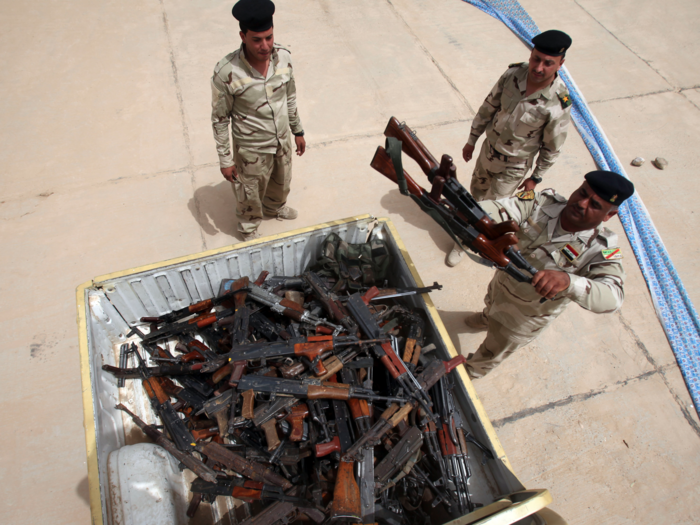
This is all on top of the huge amount of military hardware accrued by Iraq during its war with Iran in the 1980s, when it became the "world's largest retail purchaser of arms" — mostly from the west.
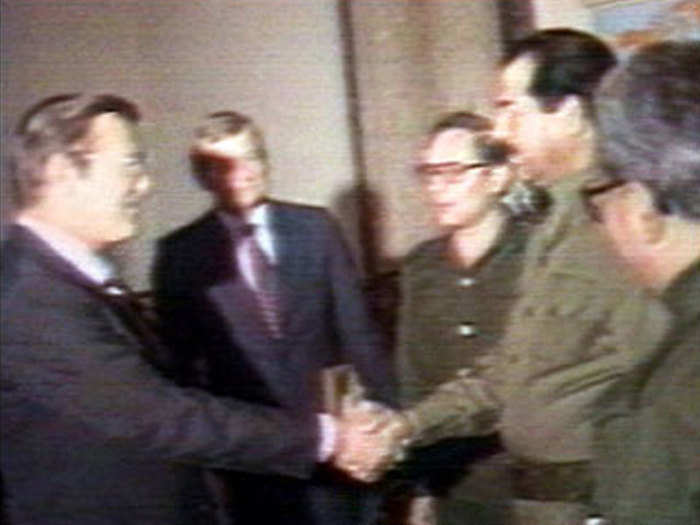
The fall of the Soviet Union in 1991 flooded the black market with everything from AK-47s to missiles, and even nuclear components.

Shortly after the US invaded Iraq in March 2003, the country's government and army fell apart. Droves of Iraqi soldiers deserted — leaving behind their weapons and uniforms — while civilians raided stockpiles of weapons amidst the chaos.
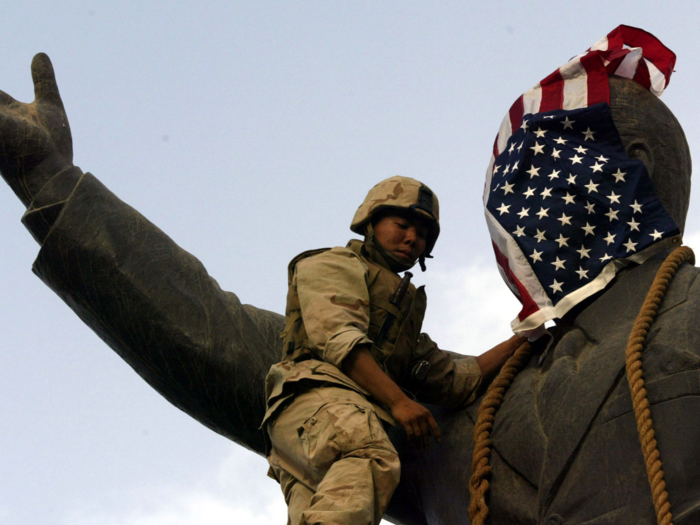
As US troops pushed to Baghdad, massive weapons factories were gutted by future insurgents. This wasn't just a few AK-47s thrown into the back of a truck, either. One factory was looted of 40,000 tons of munitions, or 6% of all explosives in the country.
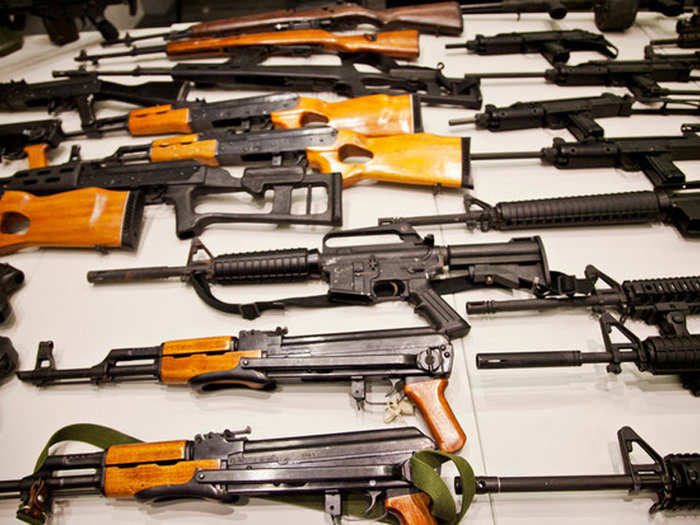 40,000 tons of munitions, or 6% of all explosives in the country.' layout='fill' objectFit='cover' loading='lazy' width="700" height="400"/>
40,000 tons of munitions, or 6% of all explosives in the country.' layout='fill' objectFit='cover' loading='lazy' width="700" height="400"/>
It was a problem the coalition learned firsthand. After insurgent attacks increased to over 1,000 a month in 2003, US intelligence found the majority of munitions used had come from "weapons sites that coalition troops had failed to protect," according to The Guardian.
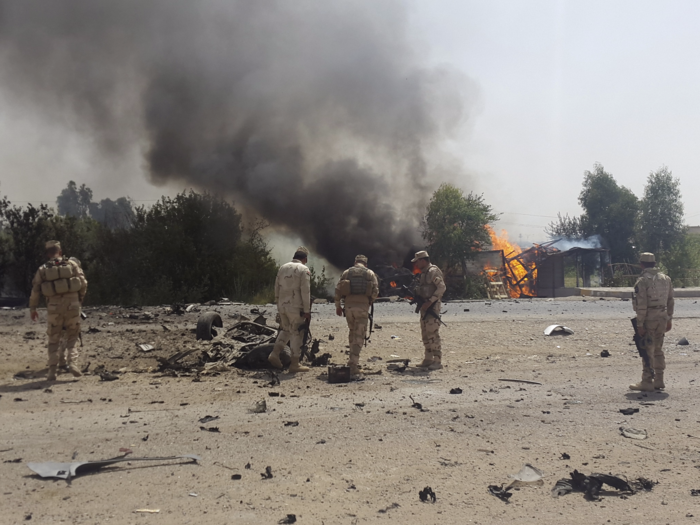
Insurgents used many of their plundered weapons against coalition troops, while also stashing some of it in hidden caches. In a story from 2006 out of Anbar province, for example, Marines boasted of finding four caches in just three days.
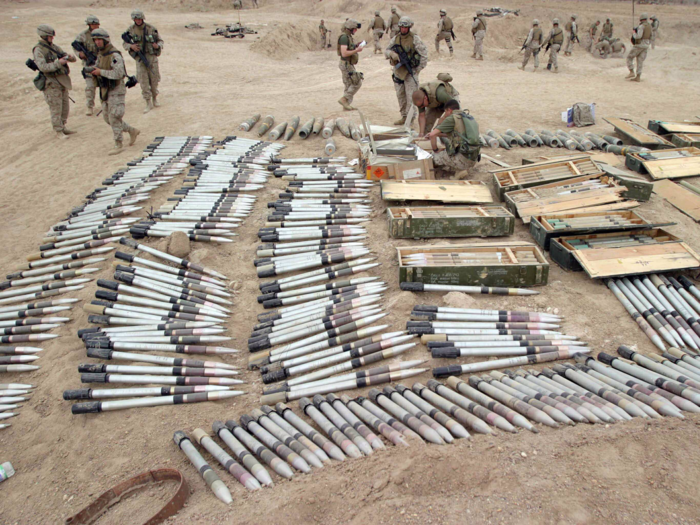
There were also outside forces supplying insurgents with heavy weaponry, such as Iran, which allegedly offered extensive training and sophisticated bombs that could rip through armored vehicles.
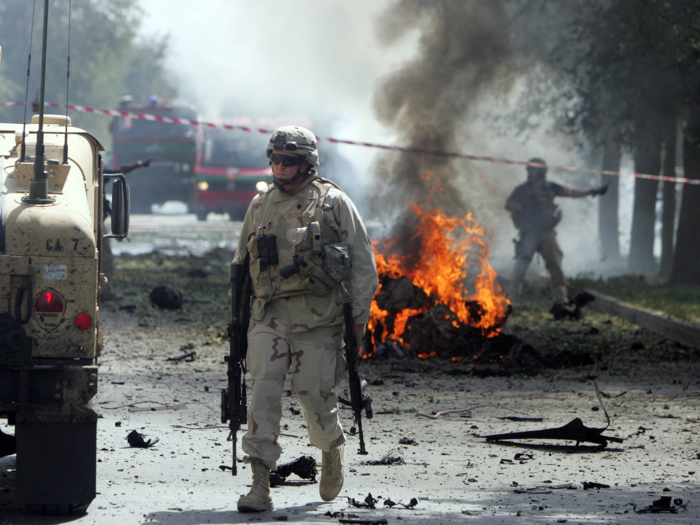
In short: There was an almost never-ending supply of guns and explosives available to insurgents during the Iraq War.
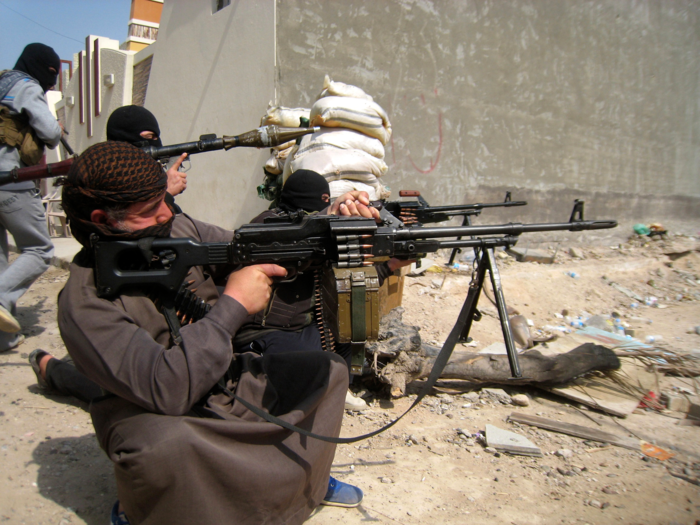
ISIS (previously known as Al Qaeda in Iraq) made its name with powerful car bombs. Made from looted explosives wired with simple triggers, they were easy to manufacture, incredibly deadly, and very cheap.
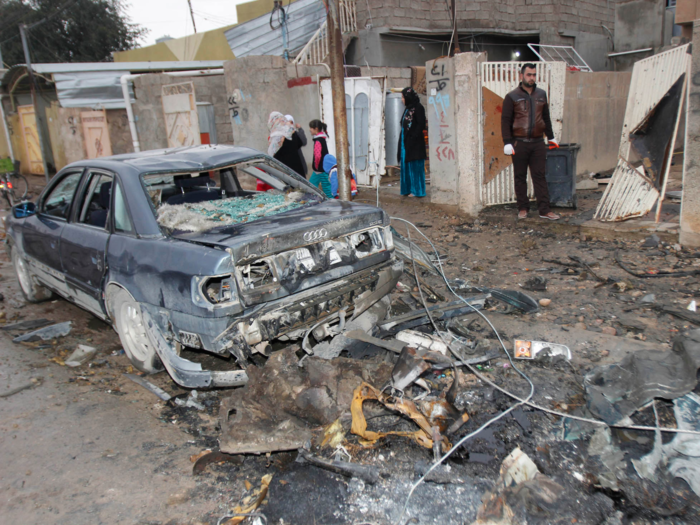
With attacks against Iraqi security forces, the group was also able to pick up US-supplied arms.
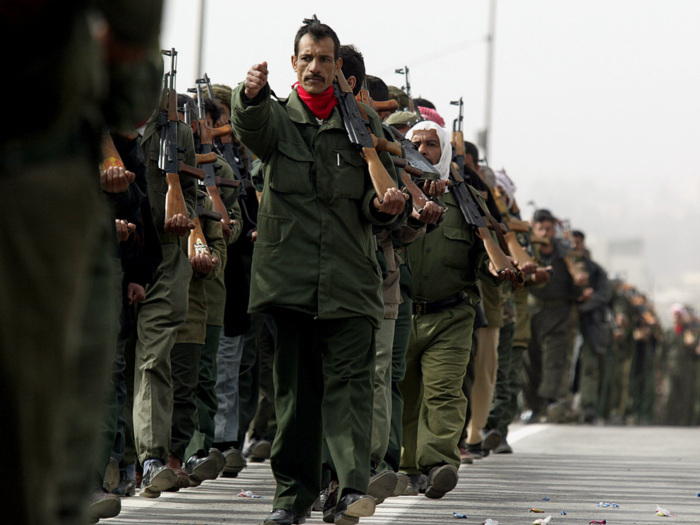
So by April 2013 when it declared an "Islamic State" in Iraq and Syria, the group had plenty of weaponry at its disposal.
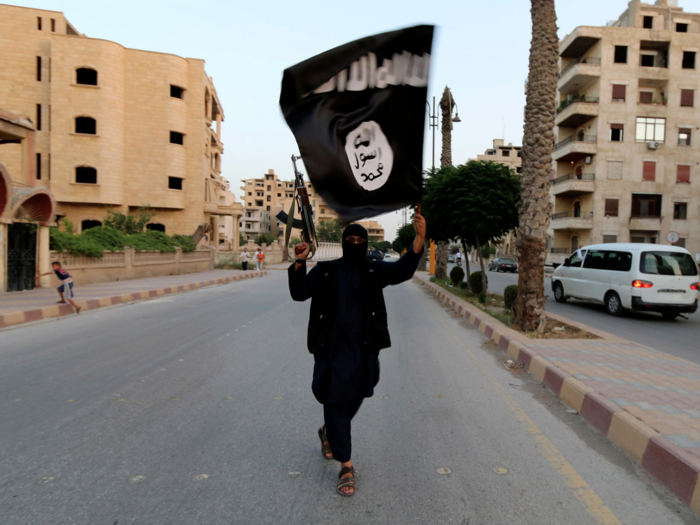
And just two months later, ISIS used car bombs to breach the walls of Iraq's Abu Ghraib and Taji prisons — freeing over 500 prisoners who were veterans of the Iraqi insurgency.
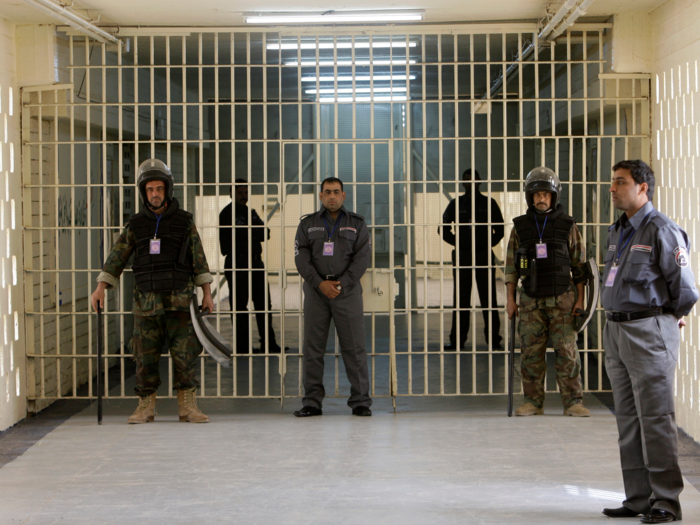
While the group had plenty of explosives and small arms such as AK-series rifles, grenades, and rocket-propelled grenades it had acquired during the Iraq War, it went on the offensive and picked up much more powerful hardware in the process.
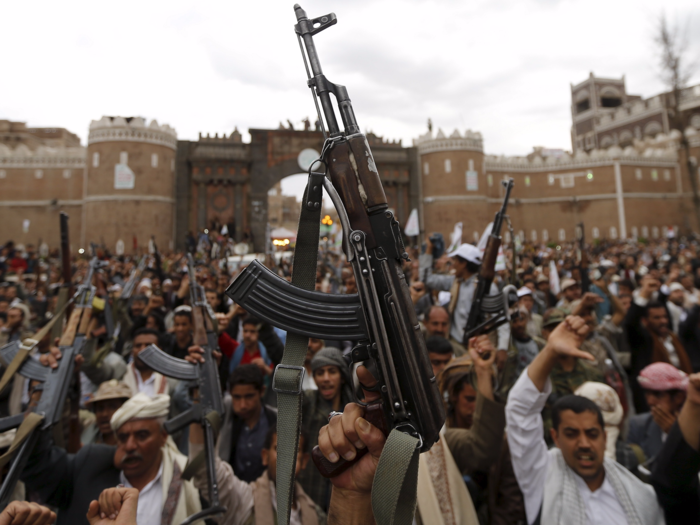
ISIS' seizure of heavy weapons seemingly started with the capture of a Syrian air base in August 2013, but that was just the first of many campaigns that would keep the group's weapons caches filled.
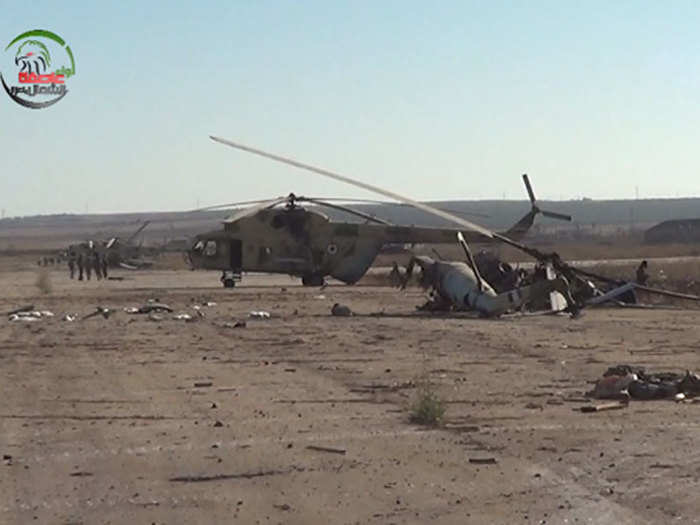 Syrian air base in August 2013, but that was just the first of many campaigns that would keep the group's weapons caches filled.' layout='fill' objectFit='cover' loading='lazy' width="700" height="400"/>
Syrian air base in August 2013, but that was just the first of many campaigns that would keep the group's weapons caches filled.' layout='fill' objectFit='cover' loading='lazy' width="700" height="400"/>
In June 2014, the group hit the motherlode when it seized Mosul, Iraq's second-largest city. There, it picked up artillery pieces, armored personnel carriers, anti-tank missiles, thousands of Humvee trucks, ammunition and much more.
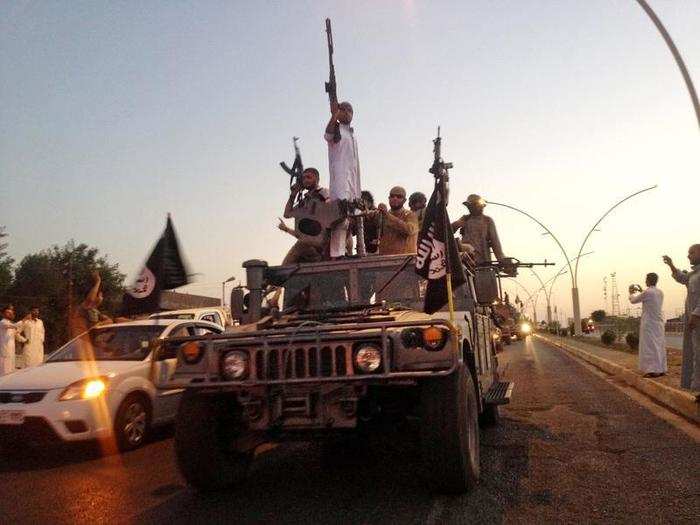
ISIS seized millions dollars worth of American and foreign military equipment after it forced three Iraqi divisions to flee in June 2014," wrote Michael Weiss and Hassan Hassan in their book "ISIS: Inside the Army of Terror.
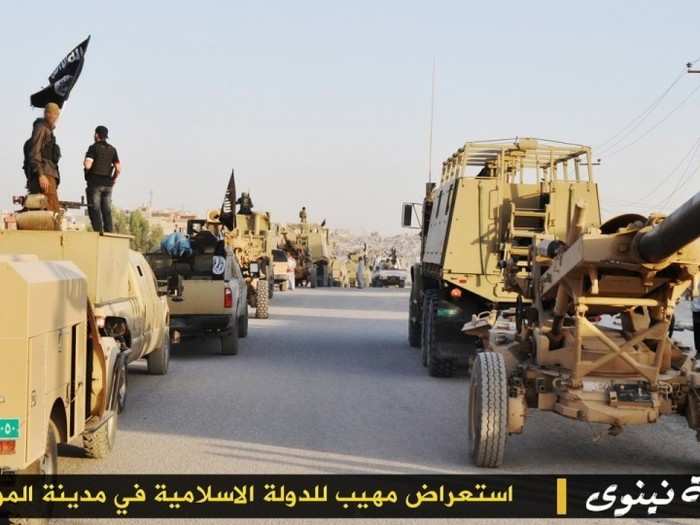
It was described by some in the press as a "windfall" of weaponry. Besides guns, the group also took control of civilian airports, television stations, government offices, and banks.
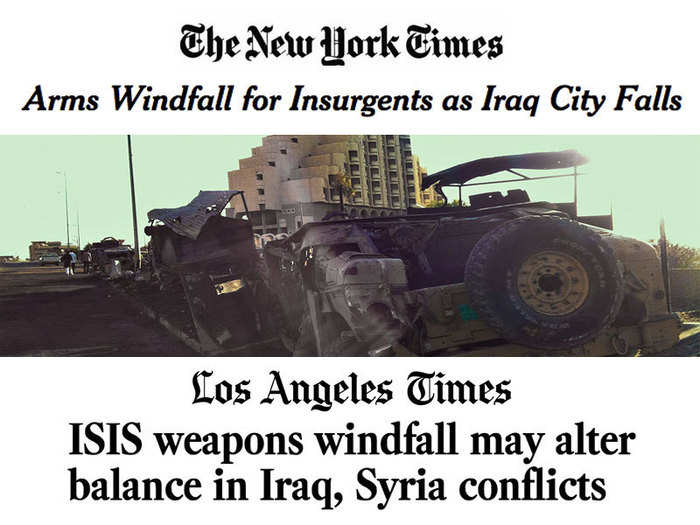
"We're talking about armaments for 200,000 soldiers, all from the Americans," Jabbar Yawar, an official with the Peshmerga, told the LA Times.
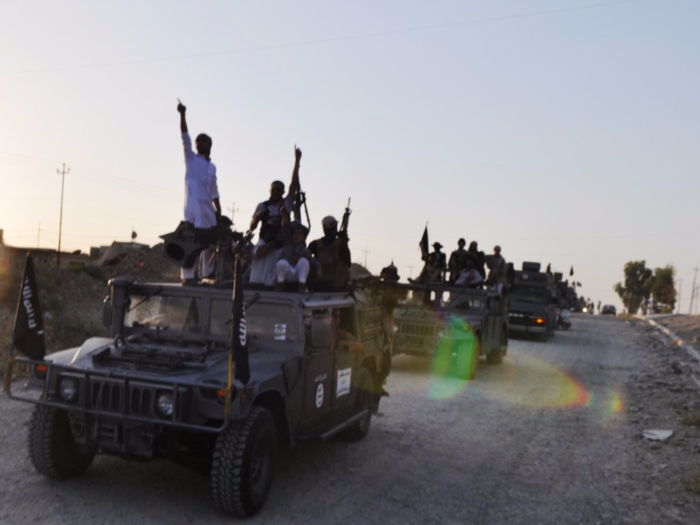 told the LA Times.' layout='fill' objectFit='cover' loading='lazy' width="700" height="400"/>
told the LA Times.' layout='fill' objectFit='cover' loading='lazy' width="700" height="400"/>
Then there was a propaganda video in Oct. 2014, where militants showed off weapons intended for Kurdish forces that were mistakenly air-dropped near ISIS positions.
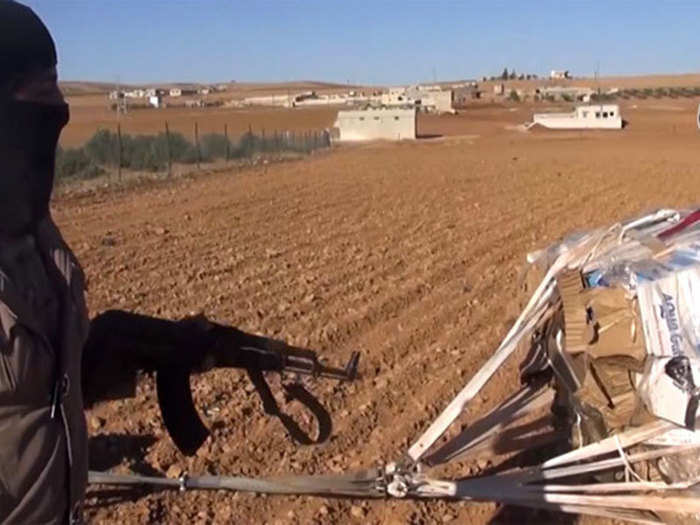
Praise God, we soon had enough weapons to fight for one or two years," Ahmad Dabaash, spokesman for the ISIS-affiliated Islamic Army, told LA Times. "And now? Don't even ask!
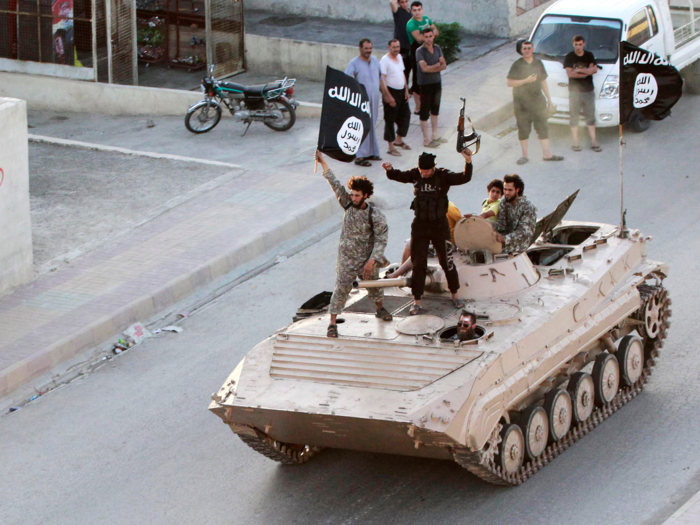
In essence, ISIS stole most of its arsenal of weapons, either through looting of stockpiles or seizing it from its enemies in battle.
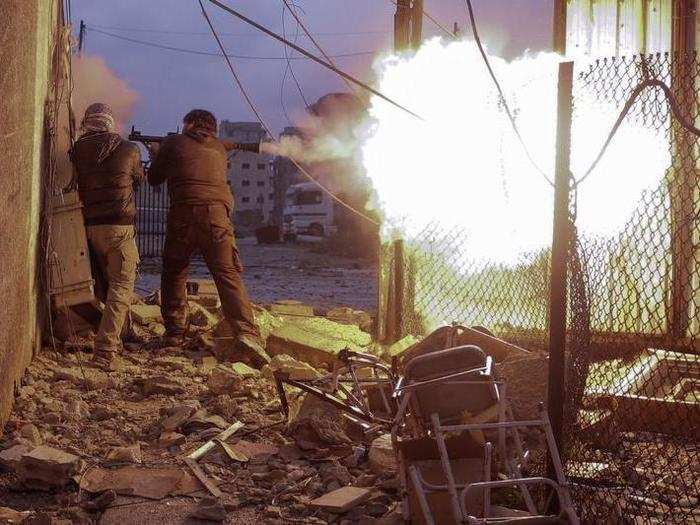
But that's not to say the group hasn't had direct support from outside its new borders.
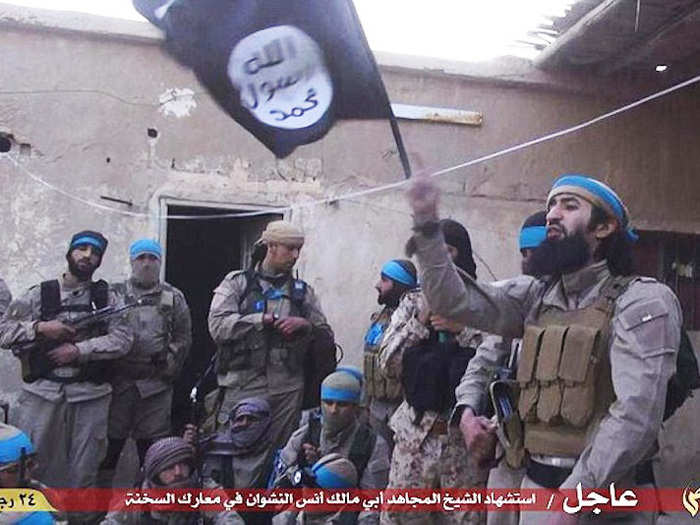
Findings in a 2014 report from monitoring group Conflict Armament Research suggest that Sudan may have manufactured and directly supplied ammunition to ISIS forces.
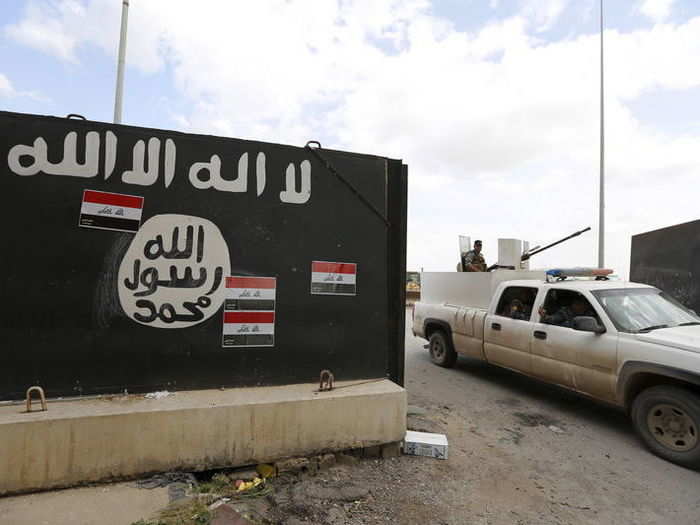
That's in addition to ammo ISIS has been found using from at least 21 countries, including Russia, China, and the United States — which was most likely seized in battle.
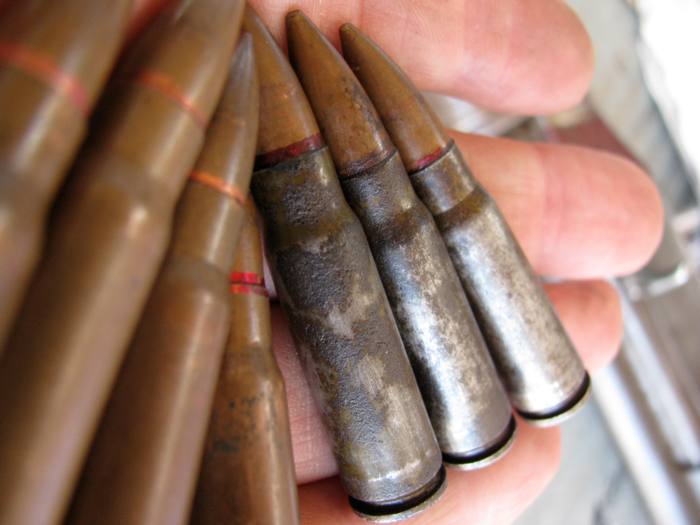
Meanwhile, the supply of arms to "moderate" Syrian rebel forces coming from Turkey, Jordan, Saudi Arabia, Qatar, the US and others, has sometimes found its way into ISIS hands.
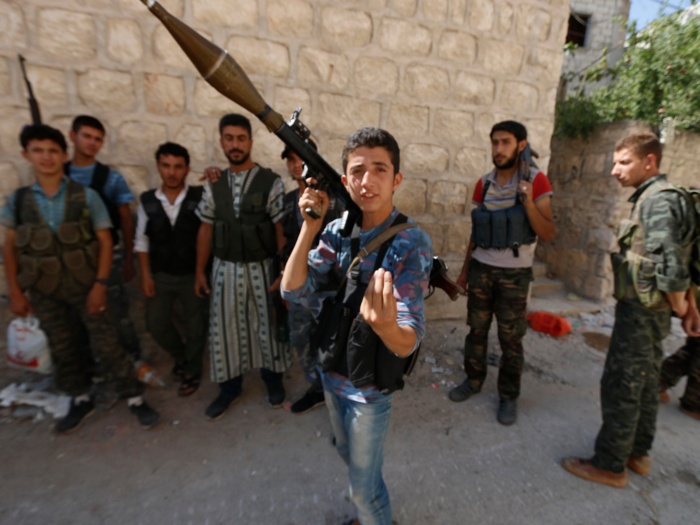
Take for instance a case in 2013 when Saudi Arabia purchased heavy weapons from Croatia intended for the Free Syrian Army. Those same grenade launchers, rocket launchers, and recoilless rifles were used by ISIS just one year later, according to the Brown Moses blog, which tracks weapons used in Syria.
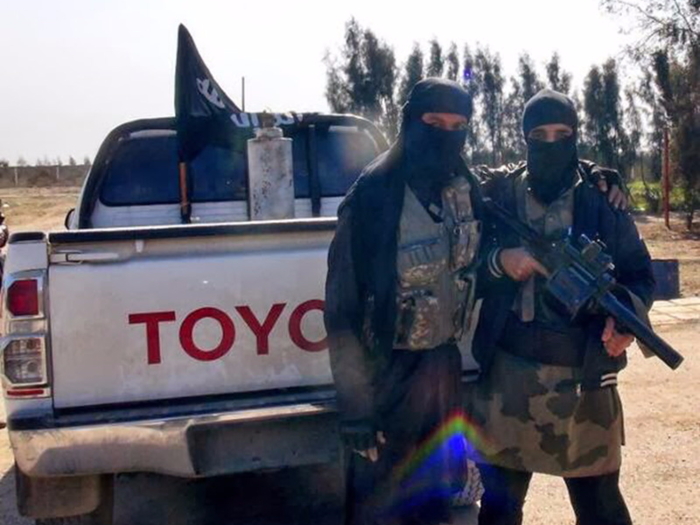
With literally hundreds of different factions now fighting in Syria, the vetting process for "moderates" has been anything but easy.
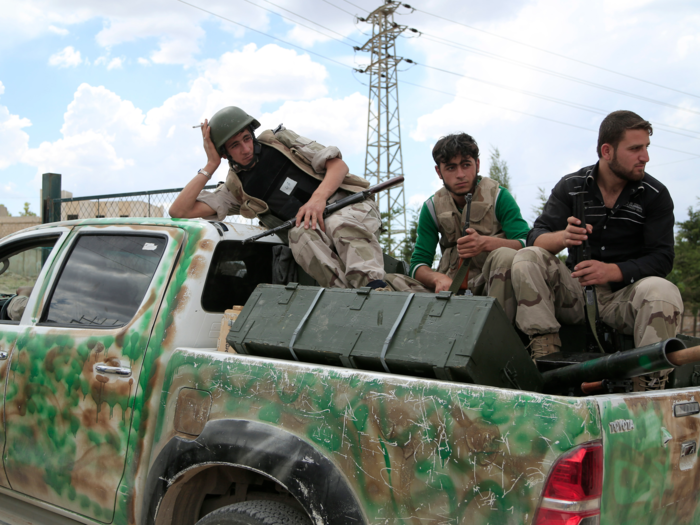
"There are fake Free Syrian Army brigades claiming to be revolutionaries, and when they get the weapons they sell them in trade,” Hassan Aboud of Soquor al-Sham told The New York Times.
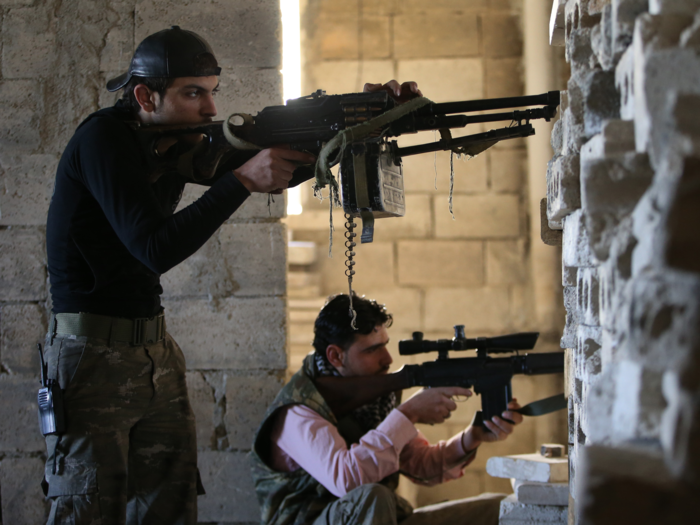
To try and mitigate this problem, the US has tried relying on the Iraqi government to supply moderate rebels, but corruption is rampant.
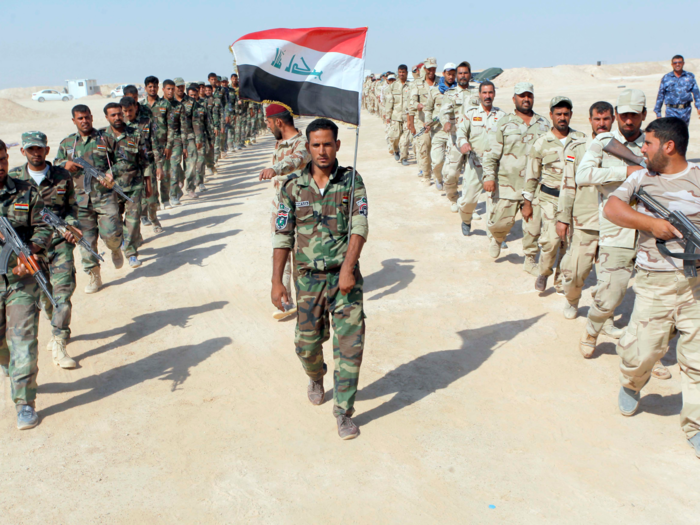
“If each soldier is supposed to get 100 bullets, he will only get 50, and the officer will take and sell the rest,” Iraqi Army Col. Shaaban al-Obeidi told The New York Times, while showing the Austrian-made Glock pistol he obtained from United States forces years ago. “If the Iraqi Army had supplied this, the barrel would explode in two rounds.”
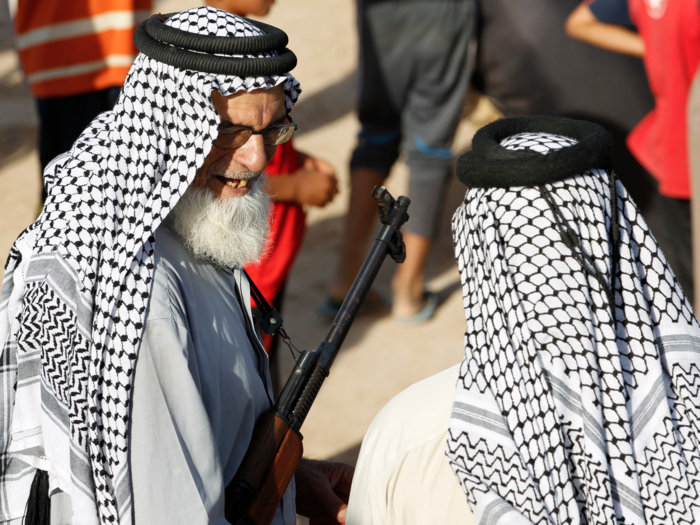
Though coalition airstrikes have limited some of ISIS' capacity and taken out many of its fighters and weapons ...
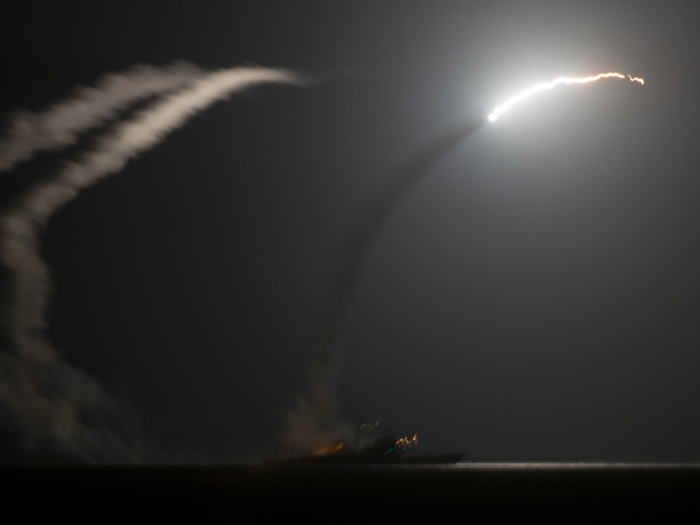
... It still continues to be a threat, awash in plenty of weapons and fighters among a population of 2.2 million people in its territories.
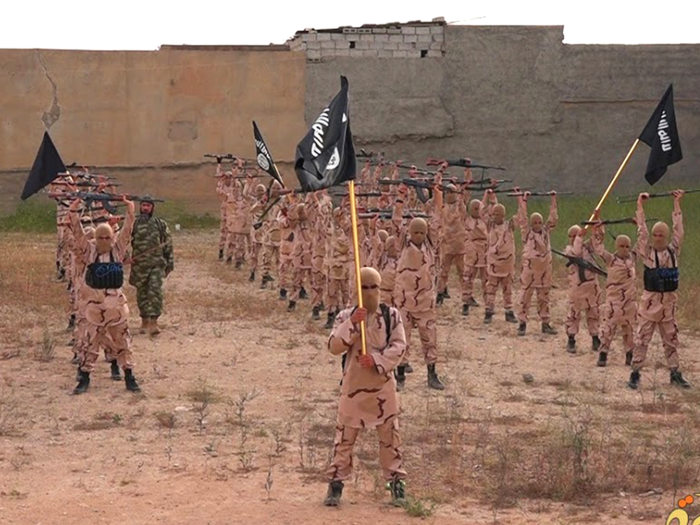
It's clear that no matter what laws or safeguards exist, terrorists always seem to get their hands on weapons of war ...
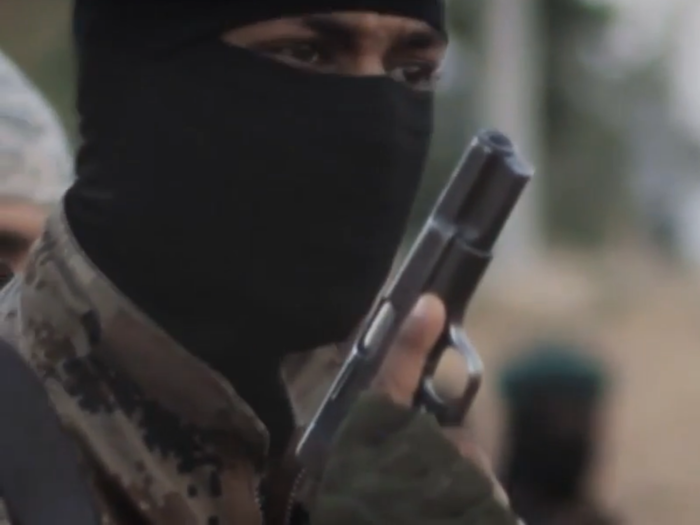
... And while no one can predict how long the nearly five-year Syrian Civil War will continue, once it's all over, it's a safe bet the weapons of this war will make it to the next.
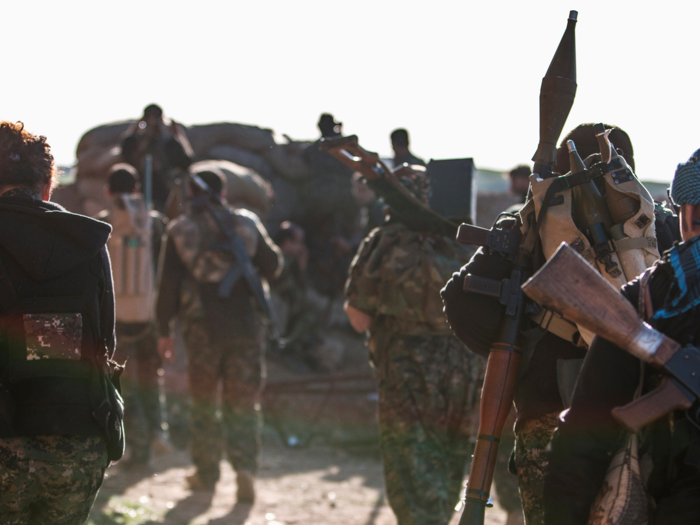
Popular Right Now
Advertisement